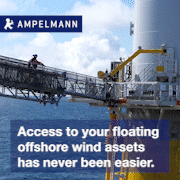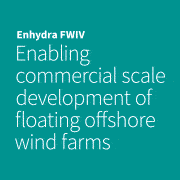Britain boosts Europe’s most efficient and developed processes for offshore wind turbines, according to The European Offshore Wind Standards, Permitting and Markets report.
“Denmark was leading in terms of offshore wind policies in Europe, but recently the UK has over taken as a result of its “rounds” system. This has proved very efficient at bringing a large number of projects online very quickly,” says Morten Holmager, renewables manager at Offshore Centre Denmark.
The report identifies many country-specific challenges, but findings from the report have found general teething problems exist across all countries.
Common barriers in the permitting process include regulatory requirements falling under a number of departments (though many countries are now streamlining this aspect); the party politicisation of renewables; long lead times to obtain the necessary permits, and weak spatial planning policies.
Since investment decisions are influenced by the permitting and planning of wind farms, delayed consents can increase the risk profile of an offshore wind project and affect its economic viability. Slow consenting also makes it difficult to schedule resources, and it can prohibit innovation. A slow permitting process can mean that turbine design has moved on by the time developers get around to installing turbines.




























